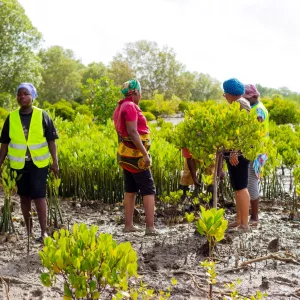Scaling land and soil regeneration through a behavioural science approach
In scaling up land and soil regeneration efforts, behavioral science plays a critical role. Understanding human behavior and motivations is key to understand what drives sustainable land management practices. And by recognizing the psychological and social factors that influence decision-making, practitioners can develop effective strategies to encourage farmers and policymakers to adopt regenerative agriculture. The experts from CGIAR and other

Scaling land and soil regeneration through a behavioural science approach
In scaling up land and soil regeneration efforts, behavioral science plays a critical role. Understanding human behavior and motivations is key to understand what drives sustainable land management practices. And by recognizing the psychological and social factors that influence decision-making, practitioners can develop effective strategies to encourage farmers and policymakers to adopt regenerative agriculture.
The experts from CGIAR and other organizations delved into this topic at a session convened by the International Union for Agroforestry (IUAF) and CIFOR-ICRAF on 7 December 2024 at the UNCCD COP16 in Riyadh, Saudi Arabia.

In this event, experts explored key strategies for behavioural change:
- Building trust and relationships: Establishing trust and rapport with communities is essential for successful implementation of land restoration projects. By involving local people in decision-making processes and recognizing their knowledge and expertise, practitioners can create a sense of ownership and commitment.
- Learning from peers: Farmers often learn best from each other. Facilitating knowledge exchange and peer-to-peer learning can encourage the adoption of innovative practices.
3. Small steps, big impact: Starting with small, achievable projects can help build confidence and momentum. Gradually scaling up efforts can reduce risk and increase the likelihood of long-term success. - Leveraging policy and incentives: Effective policies and incentives can create a supportive environment for sustainable land management. By aligning policies with environmental goals and providing financial incentives, governments can encourage farmers to adopt regenerative practices.
- Engaging the private sector: Partnerships with the private sector can provide access to markets, technology, and investment. By creating sustainable business models that reward environmentally friendly practices, the private sector can play a significant role in scaling up land restoration.
The experts agreed that by understanding the psychological barriers to change and implementing evidence-based strategies, we can accelerate the transition to sustainable land management and secure a healthy planet for future generations.

